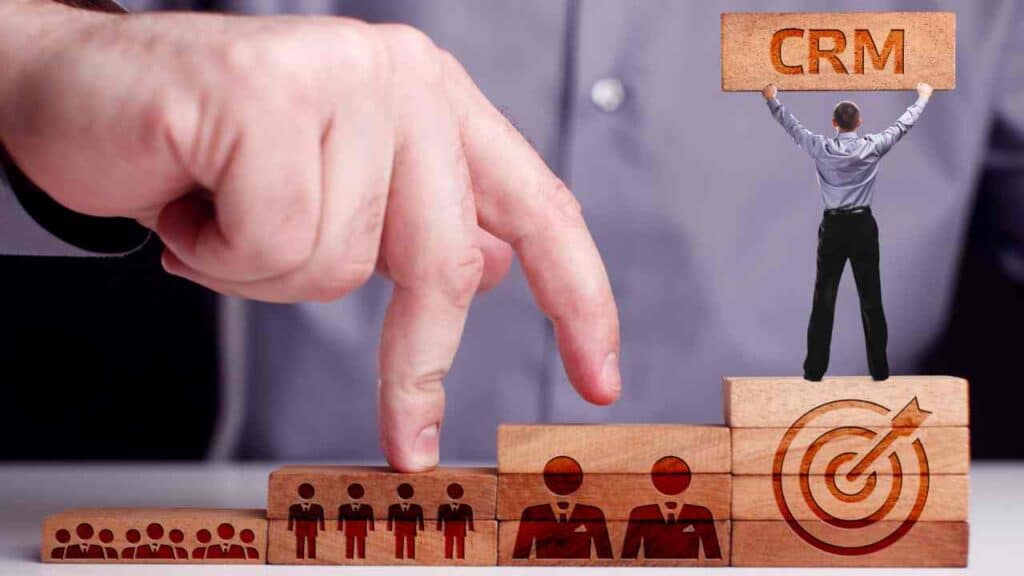Utilizing Customer Understanding to Get More from CRM

Customer Relationship Management
Customer Relationship Management (CRM) is a powerful tool that allows businesses to manage and analyze their interactions with customers. It helps companies streamline their sales and marketing processes, improve customer service, and ultimately drive revenue growth. However, many businesses fail to fully leverage the potential of CRM due to a lack of customer understanding. In this article, we will explore how businesses can utilize customer understanding to get more from their CRM system.
The Importance of Customer Understanding
Customer understanding is the foundation of effective CRM. By gaining deep insights into customer behavior, preferences, and needs, businesses can tailor their marketing and sales efforts to better meet customer expectations. This not only improves customer satisfaction but also increases the likelihood of repeat purchases and customer loyalty.
According to a study by Gartner, companies that prioritize customer understanding and use it to inform their CRM strategies achieve a 20% increase in customer satisfaction and a 15% increase in revenue. These statistics highlight the significant impact that customer understanding can have on a business’s bottom line.
Collecting Customer Data
The first step in utilizing customer understanding is to collect relevant customer data. This can be done through various channels, including:
- Website analytics: By analyzing website traffic, businesses can gain insights into customer behavior, such as the pages they visit, the products they view, and the actions they take.
- Social media monitoring: Monitoring social media platforms allows businesses to understand customer sentiment, preferences, and engagement with their brand.
- Surveys and feedback: Conducting surveys and collecting feedback from customers provides valuable insights into their needs, preferences, and pain points.
- Transactional data: Analyzing purchase history and transactional data can help businesses identify patterns and trends in customer behavior.
By combining data from these various sources, businesses can create a comprehensive view of their customers and gain a deeper understanding of their needs and preferences.
Segmenting Customers
Once the data is collected, the next step is to segment customers based on their characteristics and behaviors. This allows businesses to tailor their marketing and sales efforts to specific customer segments, increasing the relevance and effectiveness of their communications.
For example, a clothing retailer may segment their customers based on factors such as age, gender, and purchase history. They can then create targeted marketing campaigns for each segment, promoting products that are most likely to resonate with each group. This personalized approach not only improves customer engagement but also increases the likelihood of conversion and repeat purchases.
Personalizing Customer Interactions
Personalization is a key aspect of utilizing customer understanding in CRM. By personalizing customer interactions, businesses can create a more engaging and relevant experience for their customers.
One way to personalize customer interactions is through email marketing. By leveraging customer data, businesses can send targeted emails that address specific customer needs and preferences. For example, an online bookstore can send personalized recommendations based on a customer’s past purchases or browsing history. This not only increases the likelihood of a purchase but also enhances the customer’s perception of the brand.
Another way to personalize customer interactions is through website personalization. By using customer data to dynamically display relevant content and product recommendations, businesses can create a more personalized browsing experience. This not only improves customer engagement but also increases the likelihood of conversion.
Integrating CRM with Other Systems
To fully leverage customer understanding, businesses should integrate their CRM system with other systems, such as marketing automation and customer support platforms. This allows for a seamless flow of customer data across different departments, enabling a more holistic view of the customer journey.
For example, integrating CRM with a marketing automation platform allows businesses to automate personalized marketing campaigns based on customer behavior and preferences. This ensures that the right message is delivered to the right customer at the right time, increasing the effectiveness of marketing efforts.
Similarly, integrating CRM with a customer support platform enables businesses to provide personalized and efficient customer service. By having access to customer data, support agents can quickly understand the customer’s history and address their needs more effectively.
Case Study: XYZ Company
XYZ Company, a leading e-commerce retailer, successfully utilized customer understanding to get more from their CRM system. By collecting and analyzing customer data, they identified three key customer segments: young professionals, parents, and retirees.
For each segment, XYZ Company created personalized marketing campaigns that addressed their specific needs and preferences. They sent targeted emails with product recommendations, offered exclusive discounts, and tailored their website content to each segment. As a result, XYZ Company saw a 25% increase in customer engagement and a 20% increase in revenue from these segments.
Key Takeaways
- Customer understanding is crucial for effective CRM and can lead to increased customer satisfaction and revenue.
- Collecting customer data from various sources provides valuable insights into customer behavior and preferences.
- Segmenting customers allows businesses to tailor their marketing and sales efforts to specific customer groups.
- Personalizing customer interactions through email marketing and website personalization enhances customer engagement and conversion rates.
- Integrating CRM with other systems, such as marketing automation and customer support platforms, enables a more holistic view of the customer journey.
In conclusion, businesses can unlock the full potential of their CRM system by utilizing customer understanding. By collecting and analyzing customer data, segmenting customers, personalizing interactions, and integrating CRM with other systems, businesses can improve customer satisfaction, drive revenue growth, and gain a competitive edge in the market.
For small businesses, agency owners, and marketers looking for an all-in-one sales and marketing platform, SaasExpert.ca is the ideal solution. With its comprehensive CRM features and user-friendly interface, SaasExpert.ca empowers businesses to leverage customer understanding and achieve their sales and marketing goals.
Learn more about “Improve Outcomes from Client Intelligence with CRM” right here.
Frequently asked questions about Utilizing Customer Understanding to Get More from CRM.

1. Why is understanding my customers crucial for maximizing the benefits of my CRM system? 🤔
Understanding your customers is the foundation of any successful business strategy. With the rise of CRM (Customer Relationship Management) systems, businesses have a powerful tool at their disposal to centralize, optimize, and streamline communication. The better you know your customers, the stronger your relationships will be with them. A CRM system provides a holistic view of each customer, allowing businesses to track interactions, purchase history, preferences, and more. By analyzing this data, businesses can tailor their offerings and communication strategies to better meet the needs and preferences of their customers, leading to increased satisfaction and loyalty. 🌟
2. How can a CRM system help improve the quality and consistency of my interactions with customers? 🌐
A CRM system is designed to centralize all customer-related data, making it easier for businesses to access and analyze. This centralized approach ensures that all teams, whether sales, marketing, or customer service, have access to the same information. This consistency ensures that customers receive timely, relevant, and personalized interactions, regardless of which department they are dealing with. Moreover, CRM systems come with features like automated reminders, email templates, and task scheduling, ensuring that no customer interaction is missed or delayed. In essence, a CRM system acts as a bridge, ensuring seamless communication between your business and your customers. 🌉
3. How can CRM systems aid in better segmentation and targeting of customers? 🎯
Segmentation is a powerful strategy that allows businesses to categorize their customers based on specific criteria, such as purchase history, preferences, or demographics. A CRM system excels in this area by providing tools that allow for detailed segmentation. By breaking down data into specific categories, businesses can create focused lists that can be used for targeted marketing campaigns or sales strategies. This level of precision ensures that the right message reaches the right audience, leading to higher conversion rates and increased customer satisfaction. Remember, a personalized approach is always more effective than a one-size-fits-all strategy! 📊
4. Can a CRM system help in anticipating the needs of my customers? 🔮
Absolutely! One of the standout features of a CRM system is its ability to track and analyze customer behavior over time. By understanding a customer’s purchase history, interactions, feedback, and more, businesses can anticipate future needs and preferences. For instance, if a customer frequently purchases a particular product, a CRM system can trigger a reminder to the sales team to offer related products or services. This proactive approach not only enhances the customer experience but also opens up opportunities for upselling and cross-selling. In essence, a CRM system empowers businesses to stay one step ahead, ensuring that they meet and exceed customer expectations. 🚀
5. How does a CRM system ensure better protection of customer data and compliance with regulations like GDPR? 🔐
Data privacy and protection have become paramount in today’s digital age. Customers trust businesses with their personal information, and it’s the responsibility of businesses to safeguard this data. CRM systems come equipped with features that ensure data protection and compliance with regulations like the General Data Protection Regulation (GDPR). Features like encrypted storage, access controls, and audit trails ensure that customer data is secure and only accessible by authorized personnel. Moreover, CRM systems can automate processes like obtaining consent, managing communication preferences, and documenting data processing activities, ensuring that businesses remain compliant with data protection regulations. In short, a CRM system not only helps businesses build trust with their customers but also ensures that they stay on the right side of the law. 🛡️
- crm
- customer relationship management
- Utilizing Customer Understanding to Get More from CRM
- What is CRM Software?






